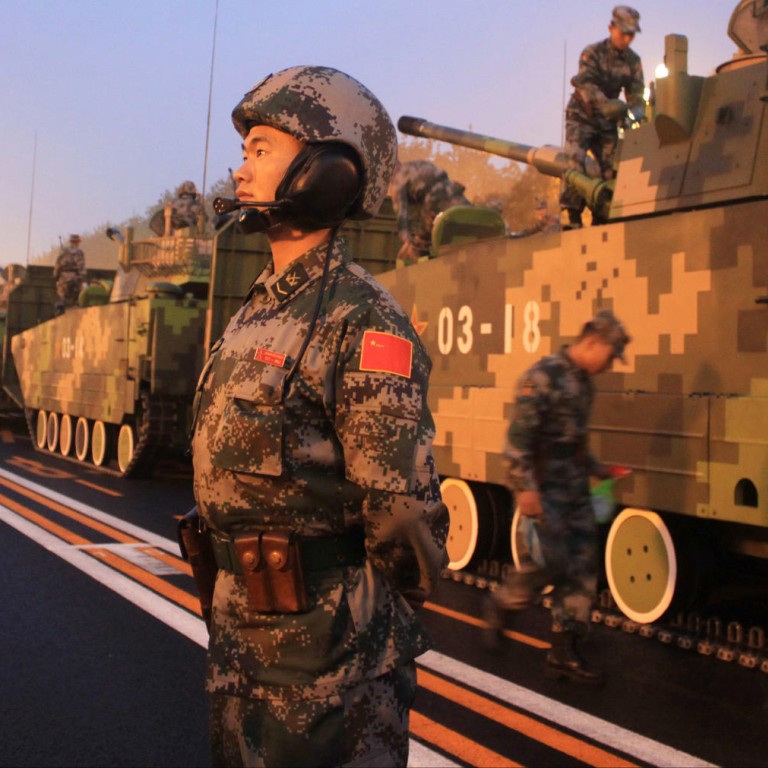
Military push powers rally in defence stocks
Beijing's increased spending to boost armed forces prompts retail investors to stock up in sector, bringing gains of 23pc over two months
Beijing's rising military ambition is providing ammunition for the country's defence stocks, fuelling a rally on the Shanghai exchange.
An index compiled by East Money Information that tracks 64 military-related shares leapt 23 per cent since September 1. The Shanghai Composite Index rose 3.8 per cent in the same period while the Dow Jones Industrial Average fell 1.7 per cent.
The rally in defence stocks mirrors the confidence of investors in a rising military budget, greater emphasis on research and development and new listings by military enterprises.
"The leadership's determination to bolster the military appears to be more than a short-term focus," said Wu Kan, a fund manager at Dragon Life Insurance. "It could continue to be a driving force for the sector in the coming one or two years."
Escalating territorial disputes with neighbours such as Japan and Vietnam have prompted Beijing to earmark more funds to beef up the military. The country's military budget hit 720 billion yuan (HK$913 billion) last year and is expected to increase at an annualised pace of 8 to 10 per cent in coming years.
Military spending accounts for about 1.3 per cent of the gross domestic product. According to Shenyin Wanguo Securities, it is far below the global average of 2.4 per cent.
Ping An Securities predicts that as the nation modernises its armed forces, exports of Chinese-made weapons would also "soar to a level that matches China's rising profile in the world".
The defence industry currently has assets totalling eight trillion yuan.
The sector, which includes companies involved in making rockets, planes, ships, guns, military electronics, satellite navigation, telecommunications and nuclear power, also spills over to the civilian market.
About 2 per cent of the country's satellite navigation systems, for example, are used for military purposes. The civilian satellite navigation market could top 400 billion yuan by 2020, aiding the defence companies working in this sector.
The government is also encouraging securitisation in military-related companies, which is likely to lead to a new wave of listings in the coming years.
"Beijing shows sign of waiving rules governing military firms' business operations," Ping An said. "It is relaxing policies to pave the way for more military companies to go public. Listings will benefit the companies in enhancing their production capacity and improving profitability."
Military companies are expected to be given priority if they wish to go public, with the securities regulator accelerating the approval process for them.
Amid fears of a market downturn, the China Securities Regulatory Commission has taken a cautious approach on new share sales this year, allowing only a limited number of small firms to float.
"IPOs of military firms will be retail investors' favourites next year," said West China Securities analyst Wei Wei. "They believe they are a good buy and will actively subscribe to them regardless of the price."
Defence stocks also offer a glimmer of hope in an otherwise dull market. The overall economy is expected to keep slowing and analysts are cautioning investors that weak fundamentals are unlikely to support a rally.
Chen Peijun, a retail investor, takes heart from the rally in defence stocks. "If the rally in military-related stocks continues, why not be bullish on the overall market? PLA is formidable and will be able to liberate poor small investors like us," he said.

